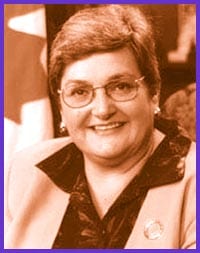Activists say the old flaws remain in the federal government’s new same-sex spousal immigration bill.
“I think it could be harder for some and easier for others,” says Vancouver’s Chris Morrissey, who fought years for changes to extend “family class” to include gay and lesbian partners.
“I think there’s going to be some trade-off.”
The Federal Liberals introduced Bill C-11 into the House Of Commons Feb 21. The reincarnation of legislation that didn’t make it through before the November 2000 election, it makes a myriad of changes to the Immigration Act.
Morrissey still sees problems Ottawa hasn’t addressed.
On the plus side for Morrissey: if the bill becomes law, lesbian and gay Canadians will be able to sponsor foreign common-law partners as family status immigrants. That’s what Morrissey has been fighting for since 1992, when she fought the federal government to allow her partner, a citizen of Ireland and the US, to immigrate as her family.
The bill is moving in the right direction as far as lesbian and gay rights are concerned, says Morrissey.
But there’s the requirement of cohabitation. What makes a same-sex common-law spouse isn’t defined in the bill.
If the government uses the same definition used in other federal laws, like the Income Tax Act, prospective immigrants must have lived with their partners one year before being recognized as family.
That’s not possible for a lot of couples, says Morrissey. Besides the obvious scenario – in which one partner lives in Canada, one in another country – some prospective immigrants live where an openly gay life will get them arrested or killed.
“You cannot impose a one-year cohabitation requirement as the condition for recognizing a relationship, when immigration doesn’t allow it to happen,” says Morrissey.
Lawyer Rob Hughes says this “catch-22” will leave deserving people excluded.
“For married heterosexuals, the ink doesn’t have to be dry on the marriage certificate: it doesn’t matter if they’re co-habitating or not.”
But a senior spokesperson for Citizenship And Immigration Canada reports the ministry is still considering what constitutes a common-law couple.
Those conditions will be in immigration regulations, says René Mercier, to be proposed in approximately six months.
Mercier says the government needs rules to prevent fake immigration claims.
“It’s the same requirements if you’re of the opposite sex,” he says. “We have to check if the relationship is real. We do the same thing for opposite sex couples; there’s no discrimination.”
But Hughes’ other concern is the plan to put relationship definitions in regulations, rather than legislation. A future government can easily change immigration regulations without going through Parliament, Hughes says.
“If we had a future Canadian Alliance government, they would find it easier to take us out [of family class].”

 Why you can trust Xtra
Why you can trust Xtra


